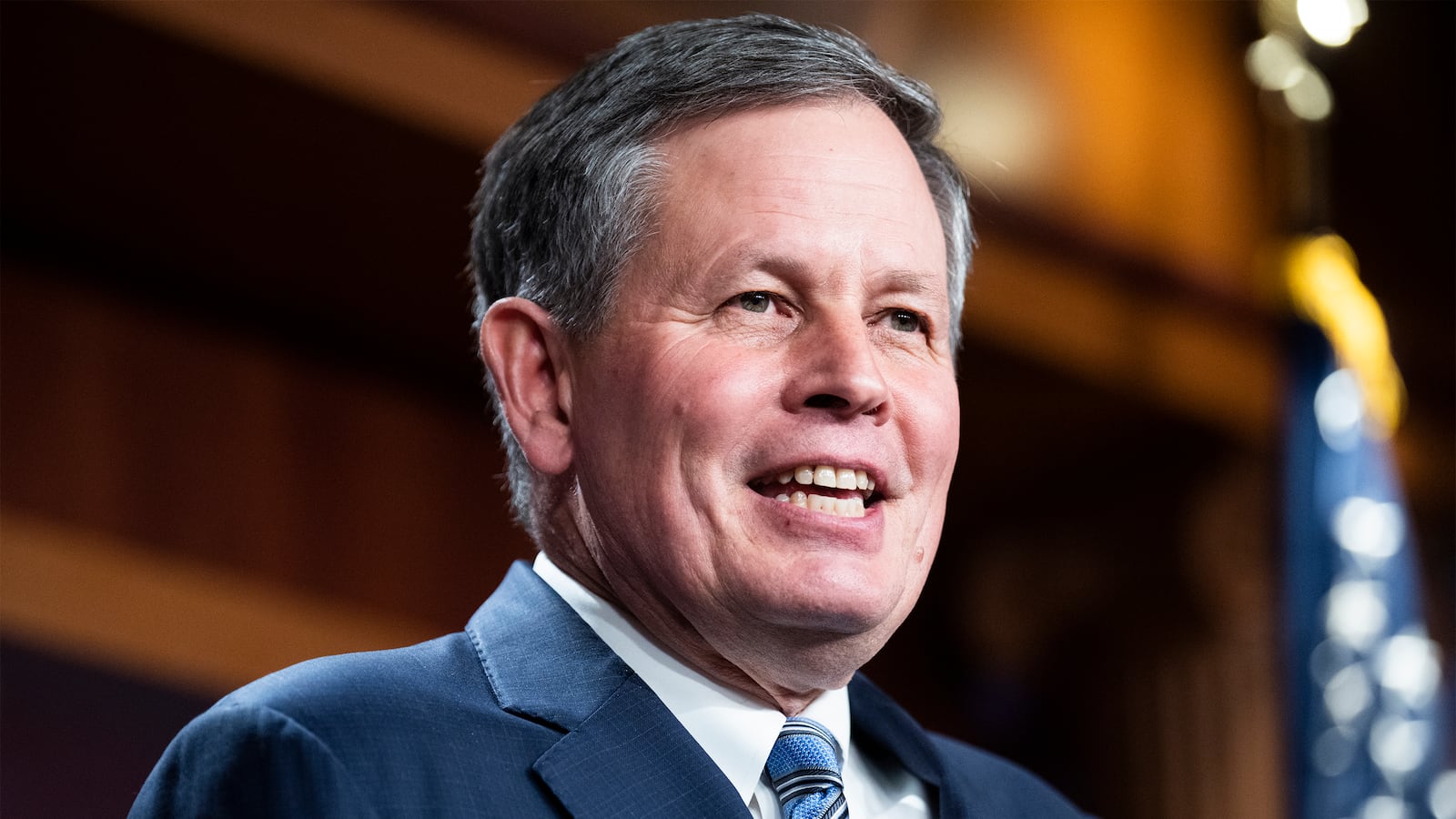It’s no secret that the 2022 campaign cycle didn’t go as Senate Republicans had hoped. The GOP predicted a red wave sweeping them back into the Senate majority. They ended up without a single pickup.
Even if Republicans were hesitant to publicly express it, there’s been plenty of finger-pointing in the direction of Sen. Rick Scott (R-FL), the GOP campaign chief for the 2022 midterms.
By now, Scott’s missteps have been well-documented. He released a plan to “rescue America,” which included—among a number of Trumpian proposals—a tax increase for the lowest-earning Americans. That plan almost immediately put him at odds with Senate Minority Leader Mitch McConnell (R-KY), driving a wedge between Senate Republicans at a crucial time and giving Democrats a potent talking point.
The National Republican Senatorial Committee was also strapped for cash down the homestretch, leaving GOP Senate candidates short on advertising and critical support. He also failed to significantly get Republican voters more comfortable with the early-voting opportunities that Democrats have taken advantage of for years now. And he was under near-constant criticism for allegedly leveraging his role to boost his national profile instead of employing effective campaign strategies.
Not to mention Scott’s own unfruitful prediction—he said Republicans could end up with 52 to 55 seats.
But in 2024, Senate Republicans are hoping for a fresh start. The GOP only has to defend 10 mostly safe seats, while Democrats will be protecting 23, several of which are in purple or red states that have vulnerable incumbents—or potentially no incumbents at all. And Republicans are heading into the cycle with a new campaign chief: Sen. Steve Daines (R-MT).
“I’ll tell ya, we’re tired of losing, and we’re going to do everything we can to win,” Daines told The Daily Beast in a brief exchange on Tuesday. (Before we could get beyond platitudes, an aide stopped the hallway interview.)
Daines, a second-term senator who quickly garnered support from his colleagues for the gig, built his political career from the ground up in Montana. He went from from the ranks of his college Republicans chapter to an unsuccessful lieutenant-governor run in 2008, to the House in 2012, to the Senate in 2014. He boasts a square chin, a caricature-like grin, and fairly consistent loyalty to former President Donald Trump.
Now, in his post-election media circuit, he’s on the offensive, describing an urgency to the upcoming cycle. Already, he’s trotted out lines about the Supreme Court, circuit court judges, and government spending. And he’s gotten aggressive about the 2024 cycle even before it’s 2023.
“He’s hit the ground running,” said Sen. John Cornyn (R-TX), a former NRSC chair himself. “And I think one of the most important things is he's been through the tough election recently where he's been dramatically outspent in spite of good fundraising numbers himself.”
Sen. Kevin Cramer (R-ND), who’s up for re-election in 2024, noted that Daines has a “different cycle and a different calendar and a different map that advantages him.”
“So I would expect him to raise a whole bunch of money, help recruit good candidates, and provide the services that NRSC has always provided,” Cramer said.
Scott himself, who’s also up for a 2024 re-election, told The Daily Beast he expects NRSC will be in good shape next cycle.
“They’re gonna do a great job,” he said. “We’re gonna have good people run.”
It’s that second statement—“We’re gonna have good people run”—where the shortcomings of 2022 come to mind for many. While former President Trump had more to do with candidate recruitment than Scott, among the 2022 crop of GOP Senate candidates were some of the most scandal-plagued, weird, and out-of-touch candidates in any recent cycle.
Asked about his takeaways from 2022 that should be applied differently in 2024, Scott mentioned encouraging early and absentee voting. “Making sure they get the votes out,” he said.
But Republicans seem to trust Daines to adapt from the 2022 failures, even if there are plenty of questions about how Daines’ approach will actually differ from Scott’s.
While the NRSC in the past has dabbled—and sometimes even endorsed—in GOP Senate primaries, the campaign arm under Scott’s tenure remained especially neutral. Now, with weak candidates clearly costing Republicans Senate seats, one of the biggest questions for Daines is whether the NRSC might endorse in primaries.
Daines hasn’t outright said he’ll put his thumb on the scale of GOP primaries. But he has emphasized a need “to make sure we have candidates that can win general elections.”
Not everyone thinks weighing in on primaries should be the default. Still, many Republicans say there could be exceptions.
“You have plenty to do and plenty of things to worry about in helping you win the general election without getting too involved in the primaries,” said Cramer.
“However, there could be the occasional situation that just cries out for help, whether it's electability or somebody who doesn't reflect Republican values,” he added.
“What I would encourage Steve to do is seek counsel from other members,” he said. “I think that's one of the things that leadership sometimes does not do when they might be best served to do that.”
With Republicans facing more open Senate primaries than re-elections next term, that philosophy could be a key tenet of the party’s 2024 prospects.
Sen. Kyrsten Sinema (I-AZ), a deeply controversial member of the left, will be up for re-election in her purple state, if she chooses to run again. Sen. Joe Manchin (D-WV) hasn’t announced whether he’ll run for re-election, but Republicans are expected to heavily target the deep-red state either way. And senators in swing states like Ohio, Nevada, Wisconsin and Pennsylvania are up, too.
Sen Jon Tester (D-MT), Daines’ own colleague, hasn't committed to whether he’ll run again. But if he does, he’ll face a long road toward re-election that’s sure to have some bumps.
“I always tell people the good thing about the Senate is you only run every six years, but it’s also the bad thing about the Senate because it actually has changed a lot. And obviously, we see the importance of candidates who can win not just a primary but also a general election, too” Cornyn said. “Sometimes people forget about that. And unfortunately, you end up not doing as well as you would like.”
While Daines was tight-lipped about his plans with The Daily Beast on Tuesday, he indicated in a Fox News interview last week that he’s taking the lessons of 2022 to heart in an attempt to make the next cycle different.
“I will tell you this: If I have heard one thing since the last election, a little over a month ago, Republicans are sick of losing,” he said.
“And we’re gonna do whatever it takes to win.”









